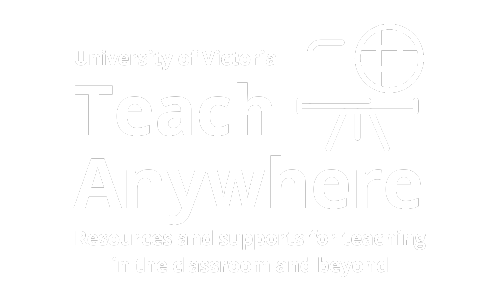We offer several programs and initiatives to enhance your teaching through learning conversations with peers. Learning from others in a collegial setting provides an engaged and collaborative experience.
Explore our other teaching programs
Small Group Instructional Feedback
We offer Small Group Instructional Feedback (SGIF) every term for faculty who wish to reflect on successes and identify areas for improvement in their courses.
SGIF is a formative, mid-course check-in used for gathering information from students on their learning experiences. This process, which is offered at many institutions nationally, is designed to foster dialogue between students and instructors and to offer students a transparent but anonymous way to share their perceptions about a course in a guided, facilitated way.
The SGIF process includes meeting with a facilitator to review goals of session, followed by the facilitator meeting with students in a 30-50 feedback session during classtime. The facilitator will then provide a written report with you and can set up an additional meeting to discuss ways to implement feedback.
Teaching Squares
Teaching Squares bring together four instructors from different disciplines in a teaching observation and sharing activity. Originally created by Anne Wessely from St. Louis Community College, the aim of these squares are to facilitate the sharing of innovative teaching methods and ideas, as well as contributing to the culture of ongoing reflection and improvement in teaching practice (Moorse & Moore, 2006). Instead of asking for direct feedback, the square is a chance for those involved to reflect on how they can enhance their teaching by observing and learning from others.
Teaching squares are developed on an ongoing basis. If you are interested in participating, contact us to request a teaching square and we will coordinate with other interested instructors across campus.
Learn more about peer review of teaching in our new learning guide!
Peer review of teaching enhances teaching practice, encourages reflection on one’s teaching and improves student learning. For these reasons, it is recommended that Faculty invite a peer reviewer to review their teaching. In this guide, we will explore principles in conducting a peer review of teaching, formative versus summative assessment, criteria and a template.
